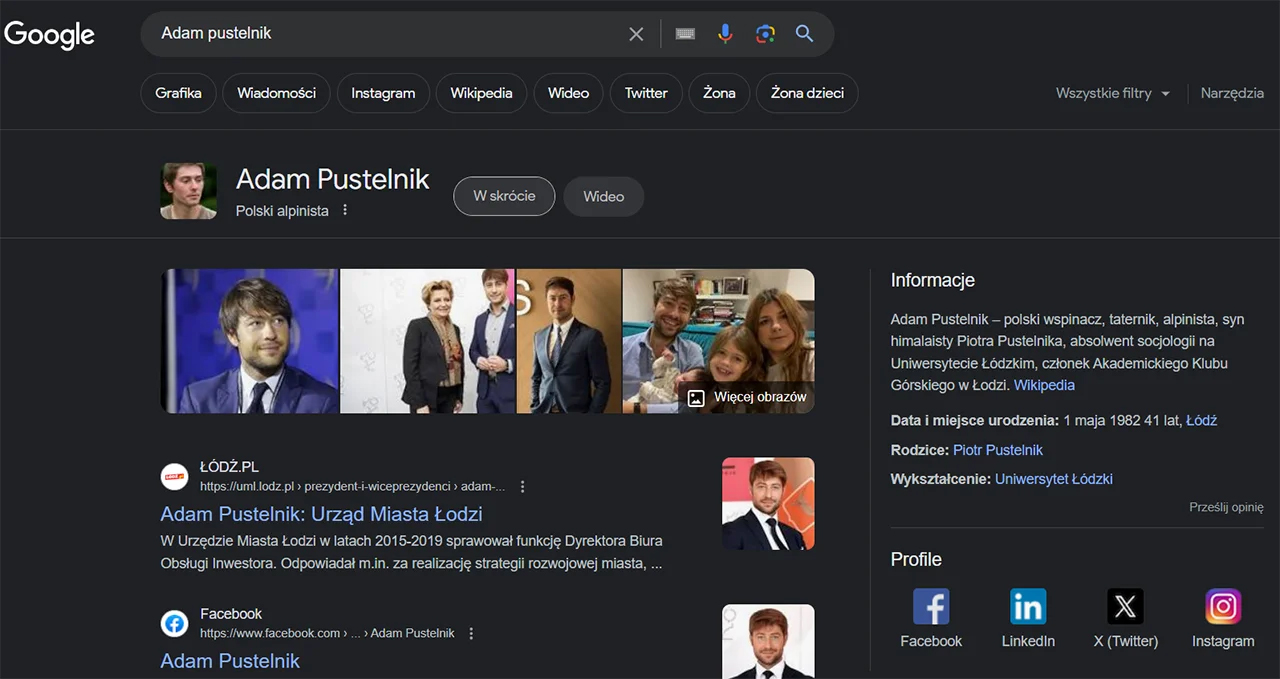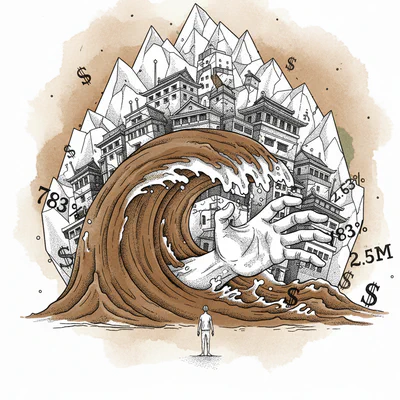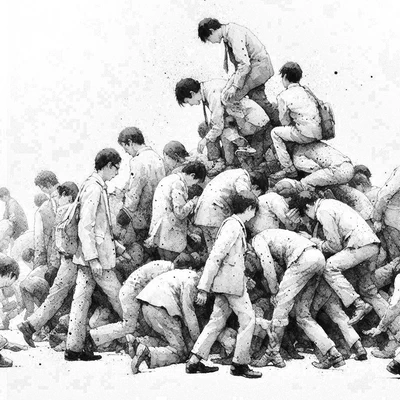Discover how cognitive biases and confirmation bias affect social activism. This article sheds light on the challenges faced by activists in the digital age, analyzing the case of Adam Pustelnik and emphasizing the importance of accurate information interpretation in the fight against disinformation.
Table of Contents
Today’s article was created after 3 months of activity and contact with activists and community workers. I must admit that this activity caused my absence from the blog. I won’t be able to publicly boast about my successes. Conversations with activists and people involved as local community workers resulted in a series of texts, the first of which I present today.
The Case of Adam Pustelnik: Cognitive Biases in Practice
Let’s start with cognitive biases resulting from a lack of technological knowledge or low technical skills. Contrary to appearances, what I write about here affects most people because not everyone knows how search engine algorithms work or the mechanisms for presenting specific search results.
Let’s analyze the search result below. We try to obtain information about Adam Pustelnik, who is the deputy of President Hanna Zdanowska. What do we see? We see a photo of Adam Pustelnik and on the right an enriched search result (Rich Results) which describes Adam Pustelnik, the son of a famous mountaineer who is also a climber and alpinist. So what’s the problem? The problem is that most people don’t go further into the search result and think that Adam Pustelnik, Zdanowska’s deputy, is the same as the famous son of the mountaineer.

Cognitive Biases
On one hand, a cognitive bias occurs through the typical activity of modern Internet users who do not read and delve into the content of articles, scanning headlines, photos, and fragments of text. This mechanism is exactly what happens here. Thus, Adam Pustelnik, Zdanowska’s deputy, is widely believed to be the son of the mountaineer, due to a fragment of enriched information provided by Wikipedia (right part of the search result).
(I described the problem of the Google index and the decline in visits to Wikipedia when Rich Results were introduced in a separate article: Read also my article about digital palimpsests and the disappearance of information)
And here begins the whole fun. Because the controversy of this error and the whole conspiracy rumor I encountered here is that activists and opponents of the current authorities in Łódź, who are very favorable to developers and uncontrolled expansion of housing estates, claim that the fact that Adam Pustelnik is the son of the deceased entrepreneur and developer is being hidden.
Activists tried to prove to me that there is some kind of conspiracy here because they even contacted Google’s office in Poland trying to explain this SERP (search result) issue. This is typical conspiracy thinking - not accepting the simplest answer. It just so happened that two Pustelniks are high in the search result, and one of them is shown as a result from Wikipedia.
Confirmation Bias in Information Analysis
This is a classic paranoid interpretation, where the activist, after searching for the term “Adam Pustelnik,” interprets the available signs differently and gives them the meanings he expects. Overinterpreted meanings confirm his previous views. That is, the concept circulating in Łódź that Adam Pustelnik is hiding the fact that he is the son of a developer, combined with the search result, which is based on a cognitive bias and simplification (scanning and replacing the significant), reinforces the meaning and leads to the next step of the conspiracy theory that everything is rigged, and they are hiding the fact that Pustelnik is the son of the developer.
Confirmation bias is combined here with a lack of understanding of how search engine algorithms work and how search results are presented. It just so happened luckily for Zdanowska’s deputy that the search result is what it is, and many people think of Zdanowska’s deputy as a romantic mountaineer.
Attribution Errors in Assessing the Importance of Information
What is the problem and why am I writing this post? Because several significant positions and strategies for improvement appear here.
Firstly, I believe that responsible activism involves accurately interpreting information and not creating conspiracy theories, fake news, and disinformation. Otherwise, we turn into a cunning manipulator who does not care about the consequences of their actions.
Secondly, an activist should have basic digital skills and a toolkit to be able to implement fact-checking procedures. At least to be able to critically verify the foundations of their views or critically evaluate small, seemingly insignificant conspiracy rumors when subjected to the echo effect (self-reinforcement of views) in a group. This will help prevent the spread of disinformation and the creation of conspiracy theories, which easily arise in social networks susceptible to the echo effect (own information bubbles). The toolkit and basic competencies regarding the mechanisms of algorithm operation and the threats in online information presentation are absolutely crucial. I see this every day during conversations, and there is a lot to be done in education.
Thirdly, and perhaps most importantly, is projecting onto Pustelnik and the people supporting him the label of bad people who have conspired. This is based on repeating false or unverified information “a conspiracy to hide the fact that Pustelnik is the son of a developer” and extending this theory to a meta-theory about the mafia of pathological developers who block development plans (Łódź has the worst rate of joining local spatial development plans while having the highest rate of issued building conditions for areas not covered by plans). Everything fits into a grand scheme.
What recommendations would I have:
Learn fact-checking methods and follow analyses provided by Demagog
Familiarize yourself with basic publications on fighting disinformation and myths, including excellent publications by Prof. Popkiewicz on conspiracy theories regarding climate change
Knowledge of manipulation and eristic techniques used by conspiracy theorists will help you develop critical competencies
Question and verify your views, do not accept every piece of information uncritically
Apply the method proposed by Prof. Napiorkowski when analyzing conspiracy theories, i.e., draw conclusions from them to the end. That is, if you claim A, what follows from this is B and then C - it will quickly become apparent that the theses are absurd or require additional evidence that you do not have.
In future articles, we will also address the issue of activism in the context of social media, manipulation, and conspiracy theories. Thank you for reading the article and I hope that now I will have more time for myself to write.





